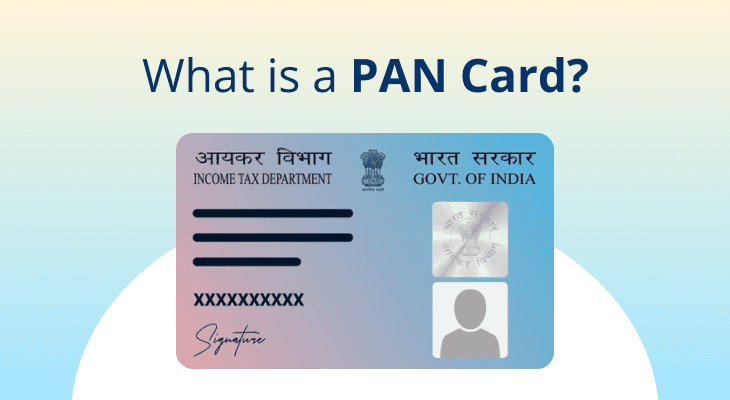
Table of content
Passport Police Verification Process: A Complete Guide
Introduction
A passport is an official form of identification required when you travel outside the country. It serves as proof of both your identity and citizenship. Because of its importance, obtaining a passport involves a formal application process that includes police verification. This step ensures the authenticity of your identity and background. Let’s explore how police verification for a passport works and what you need to know about it.
Understanding police verification for passports
Police verification is the process by which the police authenticate the identity and residential address of a passport applicant. It also helps determine if the applicant has a criminal background.
Typically, the process includes a police visit to the applicant’s residential address. The police check and verify all submitted documents and may also consult with the applicant's neighbours. In some cases, the applicant may also be asked to appear at the local police station.
While police verification is generally mandatory, there are exceptions. For example, applicants below 18 years applying for a passport with a five-year validity can be exempted if either or both parents have valid passports, the minor’s name is mentioned in one of the parents’ passports, and both parents provide written consent.
Additionally, employees of the government, public sector, or statutory bodies may be exempt from police verification if they submit an original identity certificate issued by their department along with the passport application.
Types of police verification
There are 2 types of police verification for a passport:
- Pre-passport issuance basis: As the name suggests, in this type, police verification is conducted before the passport is issued. The police verify your identity and residential address and check for any criminal history. Only after a successful verification is the passport processed and issued.
- Post-passport issuance basis: Here, the verification happens after the passport is issued. However, if the police find any discrepancies in the information submitted by you in your application or an undisclosed criminal background, they reserve the right to cancel or revoke your passport, even after it has been issued.
Step-by-step process of police verification for a passport
The process of police verification can be completed online and offline. Here are the steps for both:
Online
- Visit the Passport Seva Portal and register yourself
- Log in and choose “Apply for Passport Clearance Certificate”
- Fill in details, submit the application, and pay fees
- Book an appointment at your nearest Passport Seva Kendra (PSK)
- Download and print the application receipt and visit the PSK with original documents for verification
- After your appointment, the local police station will verify your address and identity, either in person at your home or by calling you to the station
Offline
- Fill and submit your application form to your nearest PSK
- Pay the applicable fee
- Attend your appointment with original documents
- The police will conduct verification at your address afterwards
- Once complete, the police will submit their report to the PSK
Documents required for police verification
You need the following documents for police verification:
In case of a new passport application:
- Passport application form duly filled and submitted
- Recent passport-size photographs
- Proof of identity, such as the Aadhaar Card, Voter ID, or any government-issued ID
- Proof of address, such as recent utility bills, a rent agreement, etc.
- Proof of date of birth, such as a birth Certificate, class 10th passing certificate, etc.
In case of a passport renewal or reissue:
- Existing passport
- Updated proof of address if there has been a change in residential address since the last passport was issued
- Updated proof of identity if there has been a change in name or any other personal detail
- No Objection Certificate (NOC) or Prior Intimation Letter (PI) may be required in specific cases
How do you check the passport police verification status online?
You can check the passport police verification status online by following the steps given below:
- Visit the official Passport Seva Status Tracker
- Click on ‘Track Application Status’ on the homepage
- Enter your application number and date of birth
- Click on ‘Track Status’
You will see any of the following three statuses:
- Clear: This indicates your police verification has been successfully completed and your application has been approved.
- Incomplete: This means your verification is on hold. This usually happens if there are missing or incorrect documents in your application.
- Adverse: This implies your verification has failed due to issues with identity or address. In such a case, the application may be rejected.
Common challenges in the passport police verification process
Here are some common challenges in passport police verification:
- Inaccurate information from old documents: If your documents contain outdated or incorrect details, such as an old address or a misspelt name, your verification may result in an “adverse” status. It is important to always ensure that all your documents are updated and consistent with the details mentioned in your passport application.
- Not being available during home visit: If the police visit your home for verification and you are not present, the process can be delayed. If you can’t be there, ensure a responsible family member is available to respond on your behalf.
- Failure to visit the police station on time: In some cases, you may be asked to appear at your local police station. If you fail to arrive at the scheduled time, your verification may be delayed. In such a case, your passport application can be rejected. Make sure to always attend your appointment as instructed.
Conclusion
The police verification for a passport is a crucial and mandatory step in the application process for most individuals. Only a few categories, such as minors (under specific conditions) and certain government officials, are exempt. Therefore, understanding the procedure and following it correctly is essential to avoid delays or rejections. As long as you submit accurate documents and comply with the verification process, there is no reason to be concerned.


